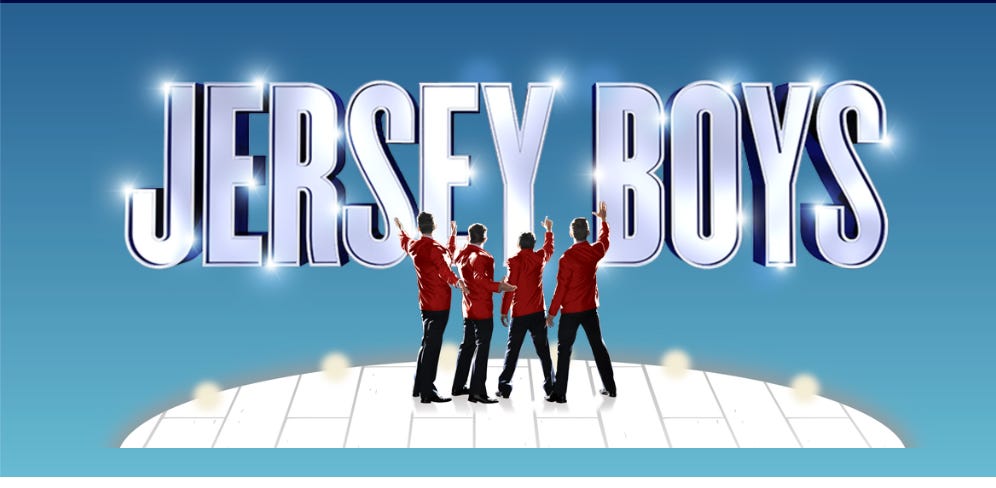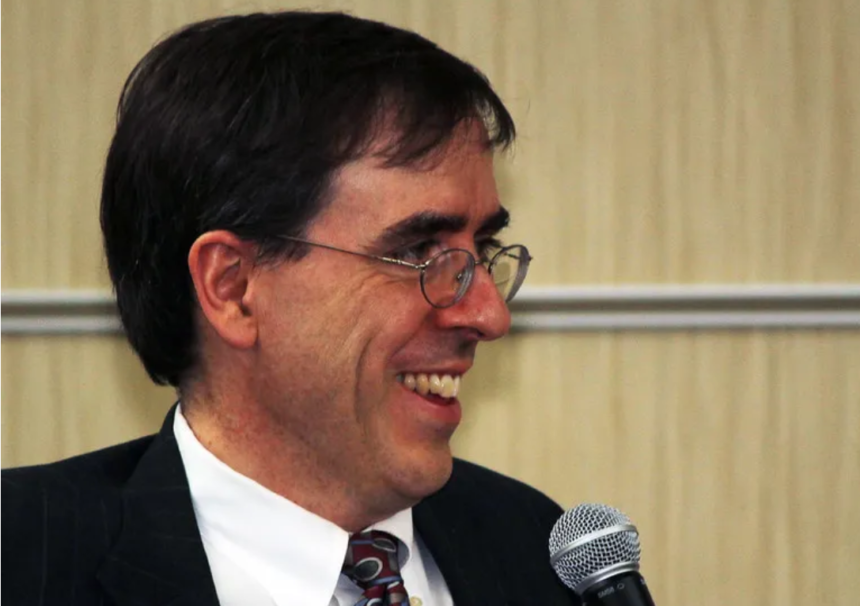
This week’s reviews focus on the complicated aspects of love and relationships with Jeanne Mackin’s “Picasso’s Lovers” and Annie Liontas’s “Sex With a Brain Injury.”
JERSEY BOYS
Riverside Center for the Performing Arts
Directed and choreographed by Patti D’Beck
Book by Marshall Brickman and Rick Elice; Music by Bob Gaudio and Lyrics By Bob Crewe
The play runs through March 24. Purchase tickets.
Reviewed by Dennis Wemm
THEATER CRITIC
In 2004, a new genre was born with the original production of Jersey Boys. There had been “bookless musicals,” pastiches such as American Idiot and Mama Mia, and “whatever-happened-to-good-old-what’s-their-name” tributes for a long time, but never had anyone tried to tell a realistic, serious story alongside a replay of favorite hits from the past.
Jersey Boys, based on the story of the pop band The Four Seasons, was an immediate hit that turned into an international sensation. It differs from later “pop-sicals” like Beautiful: the Carole King Musical, or On Your Feet in that it reveals the point of view of each member of the band.
If you are of a certain age, you have heard the songs even if you couldn’t name The Four Seasons. However, you may not have known about the criminal records of most of the band members, a fact that was carefully concealed by the group from their beginning. The show also provides a look into the darker side of the music business that propelled the culture of the early 1960’s. Finally, it examines the obsessive lives of serious professional artists.
I will also say that it’s a heck of a lot of fun.
Director Patti D’Beck keeps the pace relentless, and constant shifts of focus happen instantly. You never have a chance or the need to look away from the main frame of the action even with a running time of 2 hours and 30 minutes with a 20 minute intermission. This adds to the documentary effect of the libretto, drawn from interviews with the main personalities in the story.
The artistic point of view also changes. Actors perform quoted pieces of the interviews. They often contradict each other. This propels the second act of the performance and illustrates the bumpy road that led to the group’s temporary breakups and eventual induction to the Rock and Roll Hall of Fame.
Riverside’s cast is vocally very, very strong. Their voices are all suited to the pop performance style of the piece. As the group struggles to find success, their voices (though never discordant) don’t meld into pure harmony until they find their formula with “Sherry.” It’s truly a thrill that’s reflected in lighting, sound, costuming, and synchronized choreography. It’s simply an explosion of good feeling.
At this point, I have to let you know that for the performance on February 8 most of the male cast had switched and swung into their understudy assignments. You’ll be happy to know that if the announcement hadn’t been made before the performance you would never have known. Harmonies were tight and clean-they just sounded right. Timing was clean, character motivation shown through, and the cast projected their roles well.
Just like in the actual Four Seasons group, the show naturally centers on Frankie Valli (played by Gian Raffaele DiCostanzo). Valli’s tenor/falsetto voice was perfectly suited to the AM radio and recording style of the times, and DiConstanzo copies it well. The founder of the group as well as the cause of many of their later troubles Tommy DeVito was performed with intensity by Kevin Cleary (who is usually a member of the ensemble). Nick Massi (Cooper Shaw) is the silent group member who holds true to the dream past when the dream is gone. His building pent up irritation with Tommy, as well as his group loyalty, shows him clearly as a team player who is continually discounted by the team (he refers to himself as “Ringo Starr”). The fourth, Bob Gaudio (Jarrett Bloom) is the mature professional composer and producer who early on strikes a handshake bargain with Valli that sustains their professional and personal commitment to the group success.
The ensemble is composed of familiar and unfamiliar faces. As was unfortunately true of the times and pop music culture portrayed in the show, the female characters are mostly limited to supporting roles: girlfriends, wives, daughters. They are treated fairly and as individuals by the script, providing pivotal motivation and wisdom to the central males whose relentless need for success causes them to stomp on the needs of those closest to them.
Mary Delgado, whom Valli marries way too young, is understandably put out by his life on the road. Colleen Kleveno ably plays Valli’s daughter Francine, whose conflicts whirl her into tragedy. Sarah Andersen is the very realistic Lorraine, a young reporter who becomes Valli’s lover after he breaks up with Mary.
The ensemble swings from role to role like the pros that they are. Each character is clearly defined from the moment we meet them and when that same character shows up later the shock of audience recognition is audible-a great sign that the performers have struck a chord even with the limited stage time the plot of the show allows.
It’s no spoiler that financial success came to the group, and that financial troubles and the echoes of Tommy’s early brushes with both the law and organized crime hobbled them for a good part of the late sixties and seventies. This causes the tensions that lead to tragedies in all of their lives.
If I had one piece of advice for the cast and crew, it would be to allow the audience to give their responses. At times we wanted to applaud, laugh at, or otherwise heap praise on a particularly effective moment. It’s live theater. That communication and sense of ensemble with the audience is what makes it the most human art. Enjoy it with us!
Jersey Boys continues through March 24. You really should see it.
Dennis Wemm started directing at age 17 and didn’t stop until he retired three years ago. He loves his new home in Fredericksburg where theatre is an art, a community, and a diversion.





